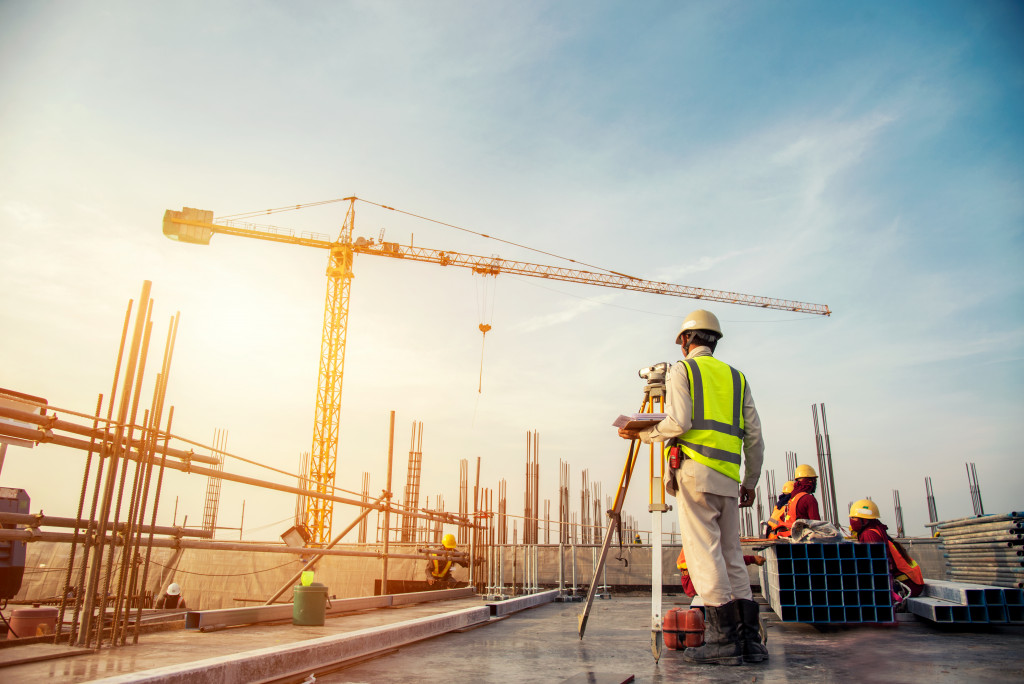- Poor planning can lead to construction delays, and it is essential to conduct a thorough risk analysis and involve all stakeholders in the planning process.
- Poor equipment maintenance can cause significant delays, so it is essential to invest in repair services promptly.
- Inadequate communication leads to safety hazards, cost overruns, and lack of accountability.
- Weather conditions and material shortages can also cause delays, so it is important to plan around weather patterns.
Anyone who has ever been involved in a construction project knows that delays can be frustrating and costly. They can cause the project to go over budget and behind schedule, leading to dissatisfaction among clients and contractors.
Unfortunately, construction delays are all too common, and various factors can cause them. This article will explore some of the most common causes of construction delays and discuss how they can be prevented.
Poor Planning
One of the most common causes of construction delays is poor planning. Failure to identify potential issues and develop a detailed and well-defined plan can lead to unexpected delays. Conducting a thorough risk analysis and developing contingency plans for potential problems is essential to prevent this. It is also important to involve all stakeholders in the planning process to ensure everyone is on the same page.
Poor Equipment Maintenance

Maintaining equipment ensures that construction projects continue on time and within budget. Unfortunately, poor equipment maintenance can lead to significant delays that can put an entire project at risk. These delays could stem from equipment breakdowns, safety concerns, or simply inefficient operations caused by poorly functioning machinery.
In such cases, hydraulic machines are often the most vulnerable. To avoid this, it is essential to invest in reliable hydraulic machinery repair services that can quickly diagnose and fix issues with hydraulic machines. Consulting experts in hydraulics can help ensure that the machines are functioning correctly and minimize the risk of delays due to equipment malfunction.
Inadequate Communication
Construction projects depend on the seamless coordination of numerous stakeholders, including architects, contractors, subcontractors, suppliers, and project managers. The importance of effective communication in construction projects cannot be overemphasized. However, inadequate communication is a common problem that causes delays, errors, reworks, safety hazards, and cost overruns. Here are the consequences:
Safety Hazards
Construction sites are hazardous environments that require constant monitoring and communication to ensure the safety of workers, visitors, and the public. Inadequate communication can lead to on-site accidents, injuries, and fatalities due to improper handling of equipment, lack of clear emergency procedures, and insufficient supervision.
Cost Overruns
Inadequate communication can lead to cost overruns as teams fail to identify and address issues early on. For example, suppose the suppliers do not communicate the expected delivery times or changes in availability. In that case, the contractors may incur additional expenses, such as expedited shipping or sourcing materials from other suppliers. These additional costs can accumulate and cause cost overruns.
Lack of Accountability
Inadequate communication creates a blame game environment where teams and individuals point fingers at each other when things go wrong. The lack of clear communication channels and accountability structures makes it challenging to identify the root causes of problems and hold responsible parties accountable.
Tips to Improve Communication:
To mitigate the risks associated with inadequate communication, construction teams can take several steps, such as:
- Establish clear communication channels and protocols, including daily check-ins, progress reports, and emergency procedures.
- Use digital tools such as project management software, instant messaging apps, and video conferencing to enhance communication and collaboration.
- Create a culture of transparency, where the stakeholders share information, ideas, feedback, and concerns without fear of retribution.
- Provide communication training and resources to all stakeholders, including soft skills such as active listening, conflict resolution, and negotiation.
Weather Conditions

Weather conditions can significantly affect construction delays, particularly in outdoor projects. Extreme heat, rain, wind, or snow can impact the progress of the construction work, leading to costly delays. While it is impossible to control the weather, it is possible to plan for it. Contractors can schedule appointments around predicted weather patterns and adjust their project timelines appropriately.
Material Shortages
Material shortages can also cause construction delays. Delays in obtaining materials can result from various issues, including supply chain disruptions, transportation delays, and changes in the scope of work. To prevent material shortages, it is essential to maintain accurate inventory records and order materials well before their anticipated use.
The Bottom Line
In conclusion, construction delays can be costly and frustrating but are not inevitable. By addressing common causes of uncertainty, such as poor planning, inadequate communication, weather conditions, and material shortages, contractors can help prevent unexpected delays and complete projects on time and within budget. By proactively anticipating potential issues and developing contingency plans, contractors can minimize construction delays and build a reputation for excellence in their industry.

